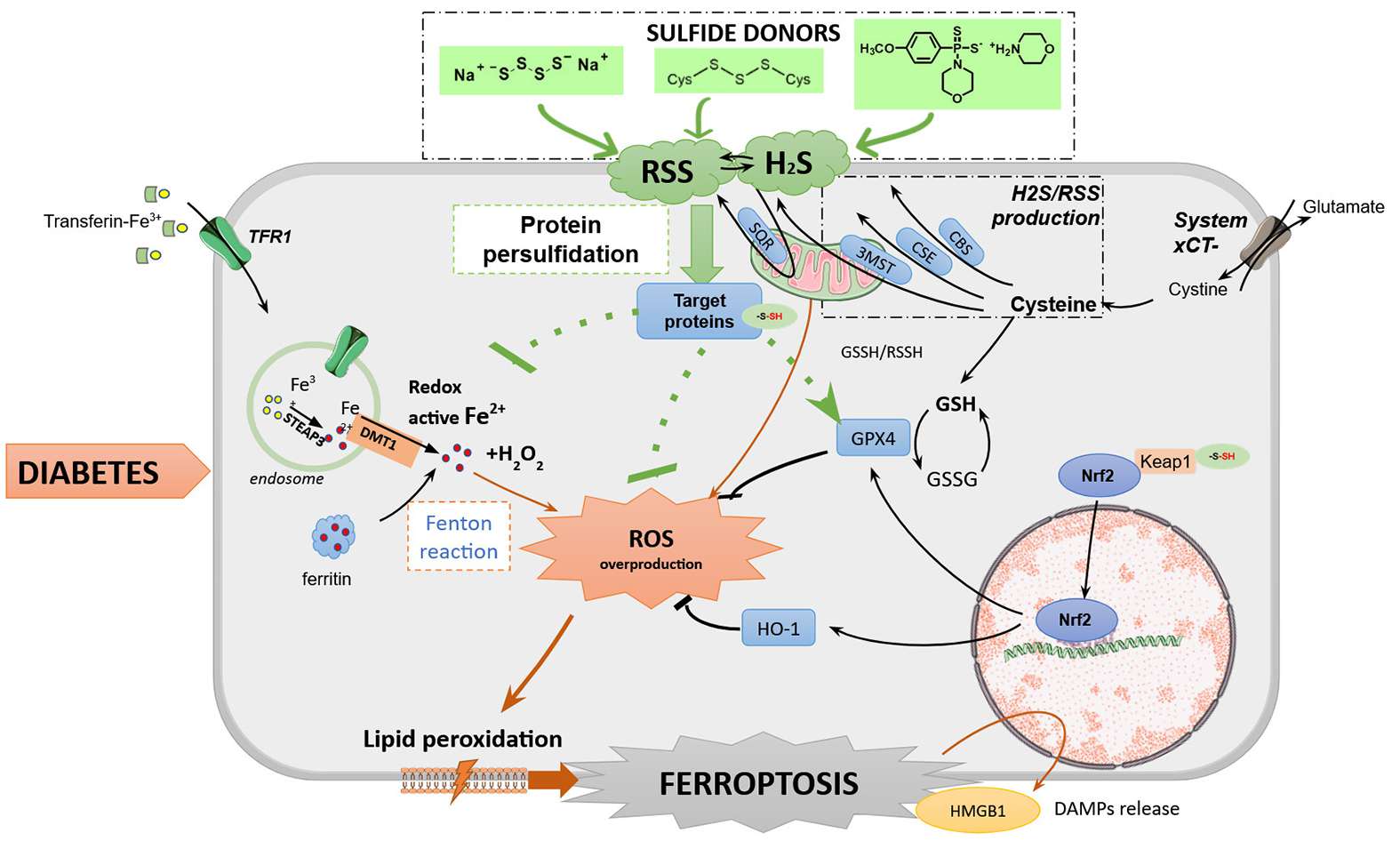The alarming increase in diabetes incidence underscores the critical need for the development of innovative therapeutic strategies to address this growing health concern. The DiaSulFer project is dedicated to exploring a novel approach for preventing and treating type 1 diabetes. This approach focuses on decrease of cell death and preserving the functional population of pancreatic β cells, pivotal for insulin production, as well as maintaining the functionality of cells in tissues affected by diabetic complications. Our recent findings indicate that ferroptosis, a newly defined form of iron-dependent cell death, plays a role in the etiology and pathogenesis of diabetes. This discovery has paved the way for a new therapeutic paradigm directed to inhibiting the process of ferroptosis. To achieve this goal, we will utilize specific natural and synthetic donors of hydrogen sulfide (H2S). Once regarded as a toxic gas, H2S is now recognized as a gasotransmitter. Its reactive metabolites, particularly persulfides, act as redox signaling molecules that regulate essential physiological processes through post-translational modification of proteins, known as persulfidation. Persulfidation of key factors involved in the regulation of ferroptosis is the core strategy we will employ in this project to suppress ferroptotic cell death and prevent cellular demise. The research outlined in this project offers a promising avenue for both diabetes prevention and therapy.
Period: 2024-2027.
Project coordinator: Dr. Vesna Otasevic, Department of Molecular Biology, Institute for Biological Research “Siniša Stanković” – National Institute of the Republic of Serbia, University of Belgrade
Team members from IBISS:
Dr. Ana Stančić, Department of Molecular Biology
Dr. Ilijana Grigorov, Department of Molecular Biology
Dr. Vesna Martinović, Department of Molecular Biology
Nevena Savić, Department of Molecular Biology
Dr. Marko Miler, Department of Cytology
External advisors:
Dr. Ksenija Velickovic, Department of Cell and Tissue Biology, Faculty of Biology, University of Belgrade
Dr. Milica Markelic, Department of Cell and Tissue Biology, Faculty of Biology, University of Belgrade
Dr. Mirjana Šumarac Dumanović, Institute of Endocrinology, Diabetes and Diseases of Metabolism, Faculty of Medicine, University of Belgrade

IBISS uses analytical cookies to analyze the use of the site in order to improve the user experience, by clicking "Accept" you consent to the use of cookies.